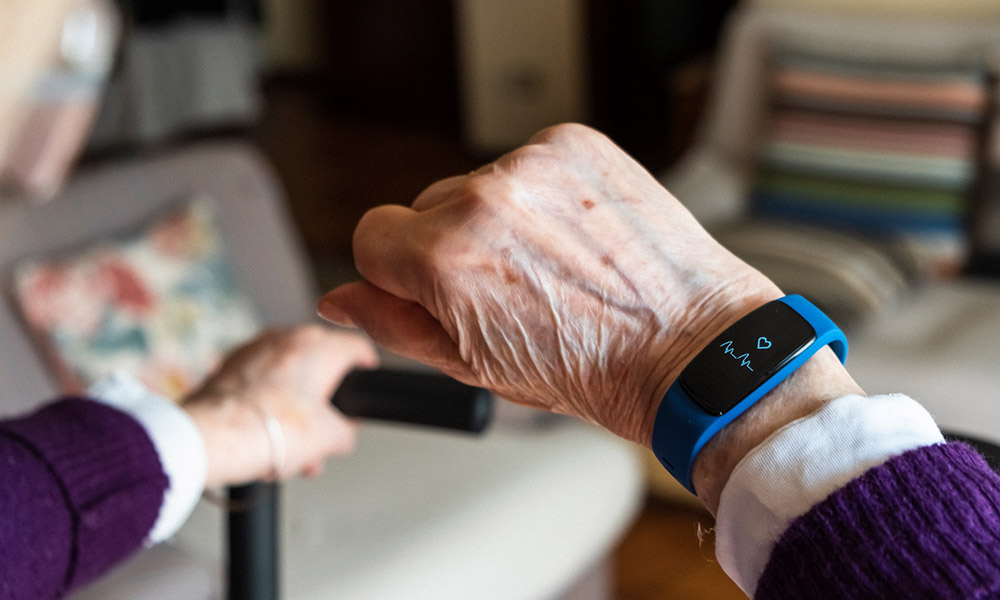
Study determines timely and accurate tremor data can improve virtual appointments
Wearable health technologies are vastly popular with people wanting to improve their physical and mental health. Everything from exercise, sleep patterns, calories consumed and heart rhythms can be tracked by a wearable device.

Dr. Daryl Wile
But timely and accurate data is also especially valuable for doctors treating patients with complicated health conditions using virtual care.
A new study from the UBC faculty of medicine’s Southern Medical Program (SMP), based at UBC Okanagan, has examined the use of wearable health technology and telehealth to treat patients with Parkinson’s disease.
Dr. Daryl Wile, a movement disorder specialist and clinical assistant professor in the faculty of medicine’s division of neurology, routinely uses telehealth to connect with Parkinson’s patients across the vast and rugged landscape of BC’s Interior.
“Even prior to the pandemic, telehealth helped deliver specialized care to patients living in remote and rural settings,” says Dr. Wile, also a clinical investigator with the faculty of medicine’s Centre for Chronic Disease Prevention and Management. “But with the complex nature of Parkinson’s, we wanted to enhance these appointments to better understand how movements vary throughout a patient’s entire day.”
To add a new layer of health information, Dr. Wile and the research team added wearable technology to the equation.
“We recruited Parkinson’s patients with either tremors or involuntary movements,” says Joshua Yoneda, SMP student and co-author of the study. “We then divided them into two groups — some using telehealth and device-based health tracking and others attending traditional face-to-face appointments.”
The telehealth group wore wearable devices to track their movements, involuntary or not, throughout waking hours. The reported data was then reviewed during telehealth appointments to identify peak times patients experienced Parkinson’s symptoms.
“With the integration of accurate and reliable data from wearable devices, we were able to tailor a patient’s medication to better manage their symptoms throughout the day,” adds Dr. Wile.
As part of the study, patients were asked a series of questions from the standardized Parkinson Disease Quality of Life Index. Both study groups were assessed at intervals of six weeks, three months and six months.
Overall, the patients using the wearable devices reported positive experiences and health outcomes in combination with telehealth appointments to access specialized care.
“There’s definitely a strong case to leverage multiple technologies to improve a patient’s quality of life and limit the added stress and cost associated with travel,” says Yoneda.
The study was recently published in Parkinsonism & Related Disorders.
A version of this story was originally published by UBC Okanagan News.